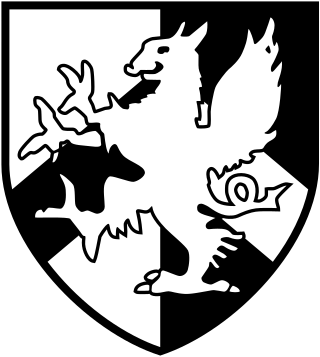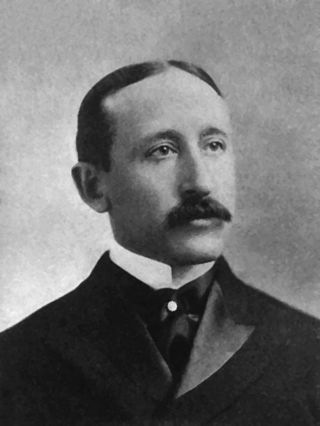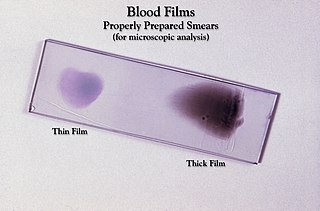Related Research Articles

Pathology is the study of disease. The word pathology also refers to the study of disease in general, incorporating a wide range of biology research fields and medical practices. However, when used in the context of modern medical treatment, the term is often used in a narrower fashion to refer to processes and tests that fall within the contemporary medical field of "general pathology", an area that includes a number of distinct but inter-related medical specialties that diagnose disease, mostly through analysis of tissue and human cell samples. Idiomatically, "a pathology" may also refer to the predicted or actual progression of particular diseases. The suffix pathy is sometimes used to indicate a state of disease in cases of both physical ailment and psychological conditions. A physician practicing pathology is called a pathologist.

Anatomical pathology (Commonwealth) or anatomic pathology (U.S.) is a medical specialty that is concerned with the diagnosis of disease based on the macroscopic, microscopic, biochemical, immunologic and molecular examination of organs and tissues. Over the 20th century, surgical pathology has evolved tremendously: from historical examination of whole bodies (autopsy) to a more modernized practice, centered on the diagnosis and prognosis of cancer to guide treatment decision-making in oncology. Its modern founder was the Italian scientist Giovanni Battista Morgagni from Forlì.

Forensic pathology is pathology that focuses on determining the cause of death by examining a corpse. A post mortem examination is performed by a medical examiner or forensic pathologist, usually during the investigation of criminal law cases and civil law cases in some jurisdictions. Coroners and medical examiners are also frequently asked to confirm the identity of remains.

Barts and The London School of Medicine and Dentistry, commonly known as Barts or BL, is a medical and dental school in London, England. The school is part of Queen Mary University of London, a constituent college of the federal University of London, and the United Hospitals. It was formed in 1995 by the merger of the London Hospital Medical College and the Medical College of St Bartholomew's Hospital.

James Stephen Ewing was an American pathologist. He was the first professor of pathology at Cornell University and discovered a form of bone cancer that was later named after him, Ewing sarcoma.

Duncan Archibald Graham, was a Canadian physician and academic who held the first position in the British Empire of chair of clinical medicine, established by John Craig Eaton at the University of Toronto in 1919. He held this position and was chair of the department of medicine and physician-in-chief at the Toronto General Hospital, until 1947.

Tongji Medical College (TJMC, simplified Chinese: 同济医学院; traditional Chinese: 同濟醫學院; pinyin: Tóngjì Yīxúeyuàn) is a medical school in Wuhan, China. Formerly Tongji Medical University (同济医科大学; 同濟 醫科大學; Tóngjì Yīkē Dàxué), it became part of the newly established Huazhong University of Science and Technology (HUST) in 2000. More than 10 graduates of the medical school have been awarded prestigious memberships to the Chinese Academy of Sciences and/or Chinese Academy of Engineering.

Clinical pathology is a medical specialty that is concerned with the diagnosis of disease based on the laboratory analysis of bodily fluids, such as blood, urine, and tissue homogenates or extracts using the tools of chemistry, microbiology, hematology, molecular pathology, and Immunohaematology. This specialty requires a medical residency.

A Medical Laboratory Scientist (MLS) or Clinical Laboratory Scientist (CLS) or Medical Technologist (MT) is a licensed Healthcare professional who performs diagnostic testing of body fluids, blood and other body tissue. The Medical Technologist is tasked with releasing the patient results to aid in further treatment. The scope of a medical laboratory scientist's work begins with the receipt of patient or client specimens and finishes with the delivery of test results to physicians and other healthcare providers. The utility of clinical diagnostic testing relies squarely on the validity of test methodology. To this end, much of the work done by medical laboratory scientists involves ensuring specimen quality, interpreting test results, data-logging, testing control products, performing calibration, maintenance, validation, and troubleshooting of instrumentation as well as performing statistical analyses to verify the accuracy and repeatability of testing. Medical laboratory scientists may also assist healthcare providers with test selection and specimen collection and are responsible for prompt verbal delivery of critical lab results. Medical Laboratory Scientists in healthcare settings also play an important role in clinical diagnosis. An estimated 70% of medical decisions are based on laboratory test results and MLS contributions affect 95% of a health system's costs.
Kenneth Merle Brinkhous (1908–2000) was a professor and chairperson in the Department of Pathology and Laboratory Medicine at the University of North Carolina at Chapel Hill. Brinkhous remained active in research until shortly before his death.

Frank Burr Mallory was an American pathologist at the Boston City Hospital and Professor of Pathology at Harvard Medical School, after whom the Mallory body is named.

Lauren Vedder Ackerman was an American physician and pathologist, who championed the subspecialty of surgical pathology in the mid-20th century.
Sonic Healthcare Limited is a Sydney-based, Australian company that provides laboratory services, pathology, radiology services and Primary care medical services.

Juan Rosai was an Italian-born American physician who contributed to clinical research and education in the specialty of surgical pathology. He was the principal author and editor of a major textbook in that field, and he characterized novel medical conditions such as Rosai-Dorfman disease and the desmoplastic small round cell tumor. Rosai is also well-known because of his role as teacher, mentor and consultant to many American and international surgical pathologists.
Dame Barbara Evelyn Clayton was an English pathologist who made a significant contribution to clinical medicine, medical research and public service. She was latterly Professor of Clinical Pathology at Great Ormond Street Hospital, London.
James Hartley Blakelock was a New Zealand medical doctor born in Chesterfield, England.
Jawahar "Jay" Kalra is a Canadian physician, clinical researcher and educator. Kalra is a professor at the Department of Pathology and Laboratory Medicine at the University of Saskatchewan, a Fellow of the Royal College of Physicians and Surgeons of Canada, the Canadian Academy of Clinical Biochemistry, the Canadian Academy of Health Sciences, Life Fellow of the Royal Society of Medicine, UK and a Canadian Certified Physician Executive Leader (CCPE). Kalra served as a member of the Board of Governors University of Saskatchewan and currently serves on the Board of Directors, Council of Canadian Academies (CCA).
Elizabeth Joan Stokes was an English bacteriologist. She spent the majority of her career as a clinical bacteriologist at University College Hospital in London.